- Published: 11.11.2019.
“City's Green Future” conference held in Zagreb
Organized by the Ministry of Construction and Physical Planning at the International Hotel in Zagreb the conference named “City’s Green Future” gathered around 300 attendees interested in planning and financing projects of green infrastructure in urban areas and applying circular management principles in buildings and spaces. Deputy Prime Minister and Minister of Construction and Physical Planning Predrag Štromar opened the conference.
In his opening remarks he informed about the Croatian National Development Strategy until 2030 whose development direction “Green Croatia” will bring about higher quality standards for its citizens.
“The strategy 2020 until 2030 develops strategies to mitigate CO2 emissions, increase energy efficiency and develop more comfortable living conditions for our citizens”, said Minister Štromar and further explained that the focus is on urban, large areas, where green infrastructure and green policies could accomplish these goals, in other words reduce temperatures in big cities.
“So far, we mostly used grants for energy efficiency, and currently there are more than 1400 buildings being or are renovated, we have warm and safe homes, comfortable classrooms, assembly halls and infirmaries, but now we are working on new goals”, said Minister of Construction and Physical Planning.
Green infrastructure is recognized at the EU level as one of the basic dimensions in achieving sustainable urban development, and one principle supporting urban development is circular economy whose business model replaces the concept of “end life” products and uses the alternative re-use concept contributing to sustainability of raw materials and energy. Important part of European strategy for circular management is circular management of spaces, which includes re-use of abandoned spaces and buildings and intensive use of existing buildings and spaces. Building new and demolishing existing buildings results in excessive demolition material which accounts for third of all manufactured waste in EU-a, which is why circular management of spaces will have a huge impact inn sustainable urban development of cities and urban areas.
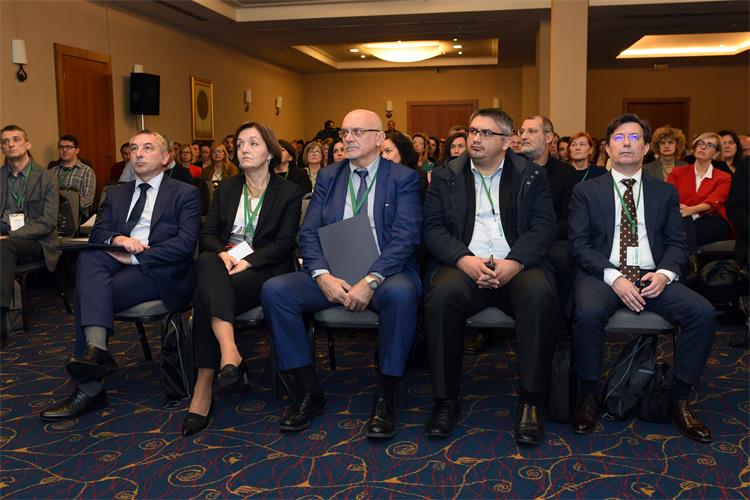

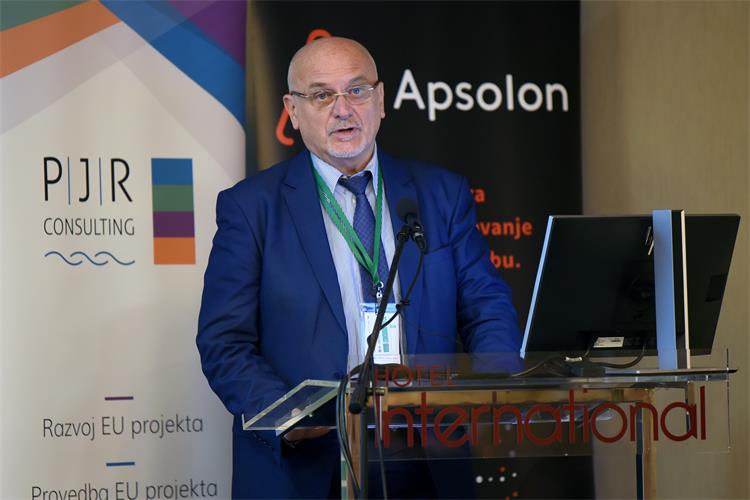
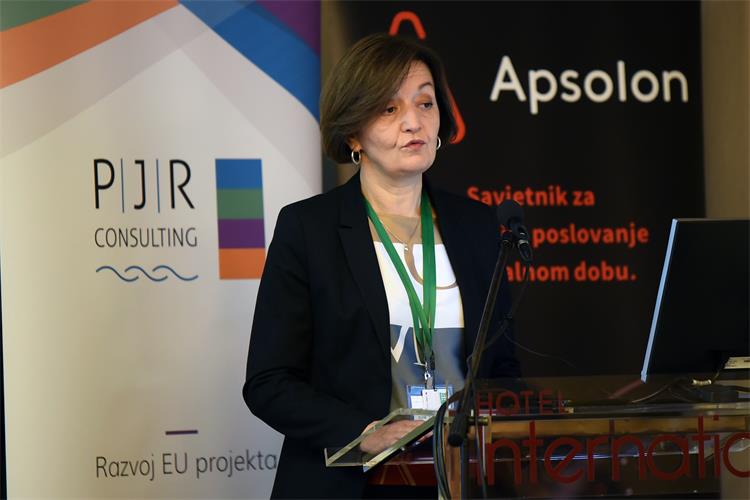

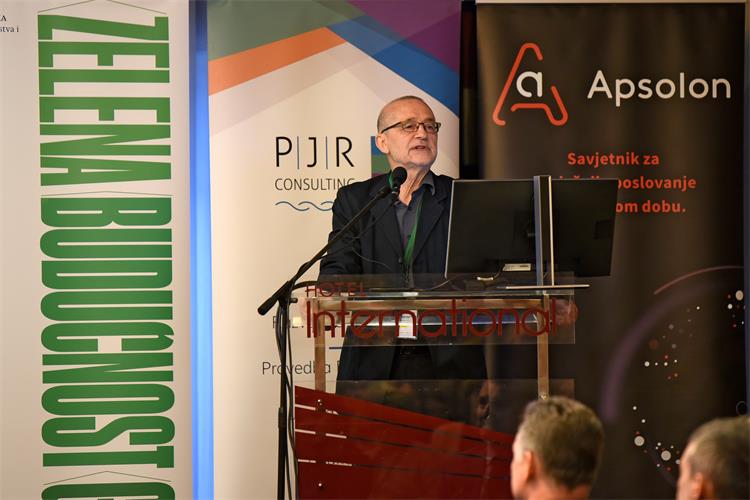
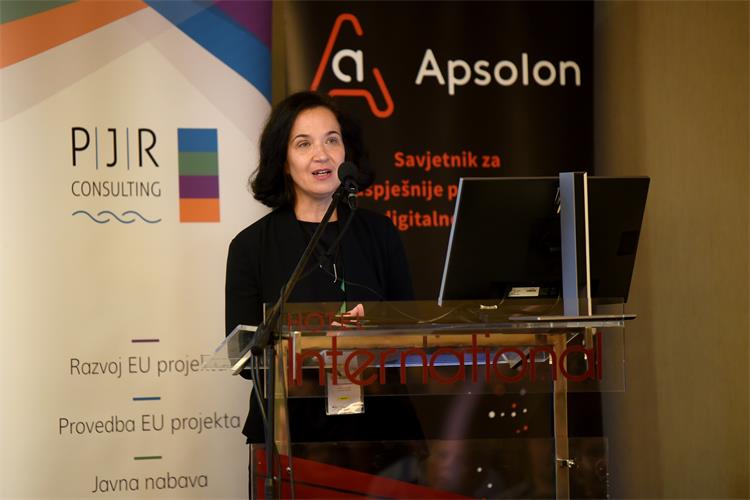
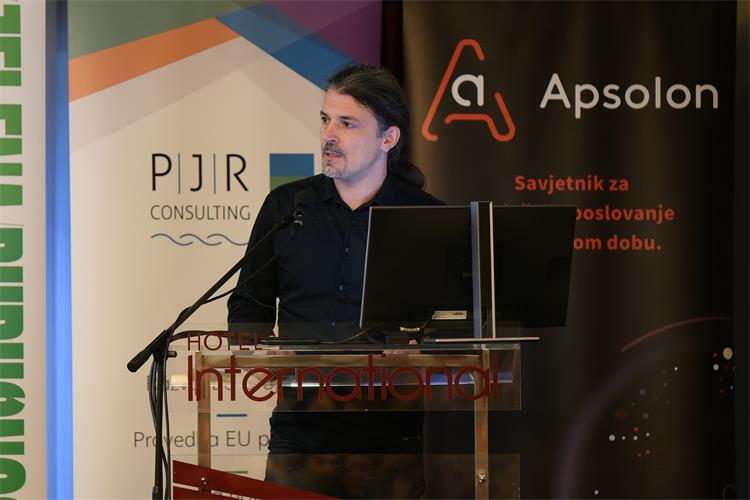
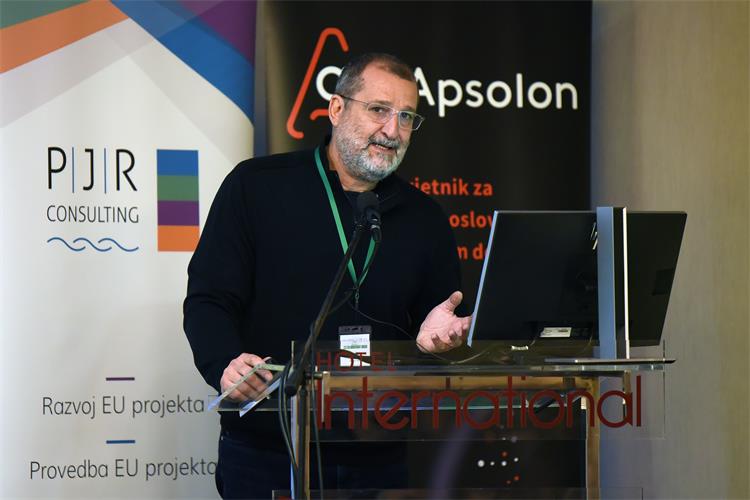
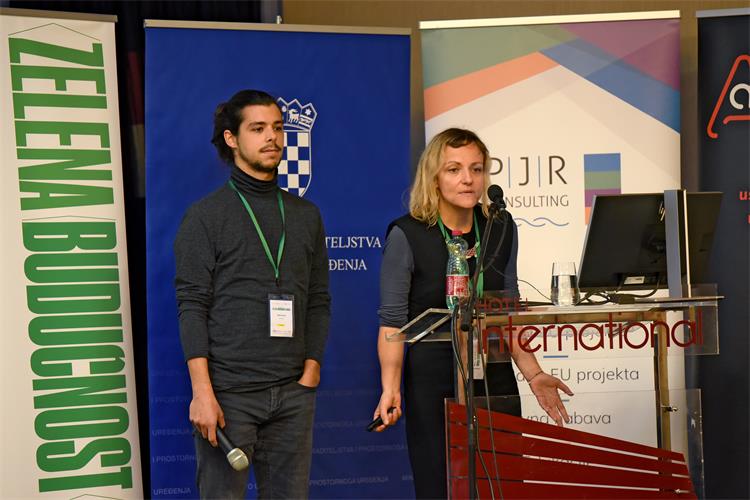
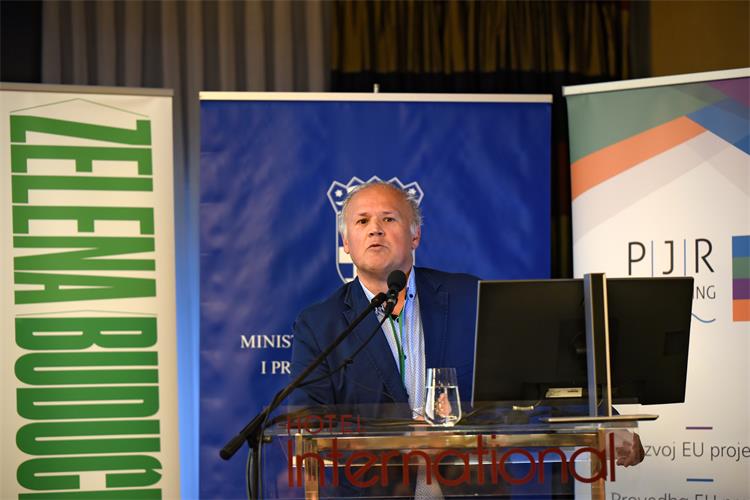

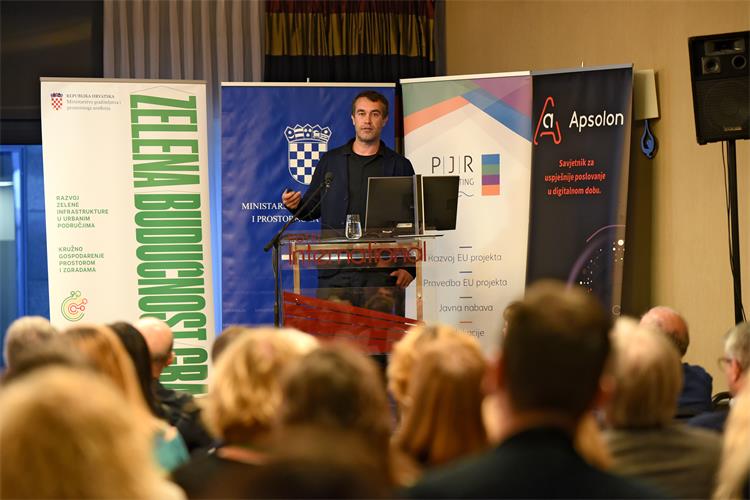
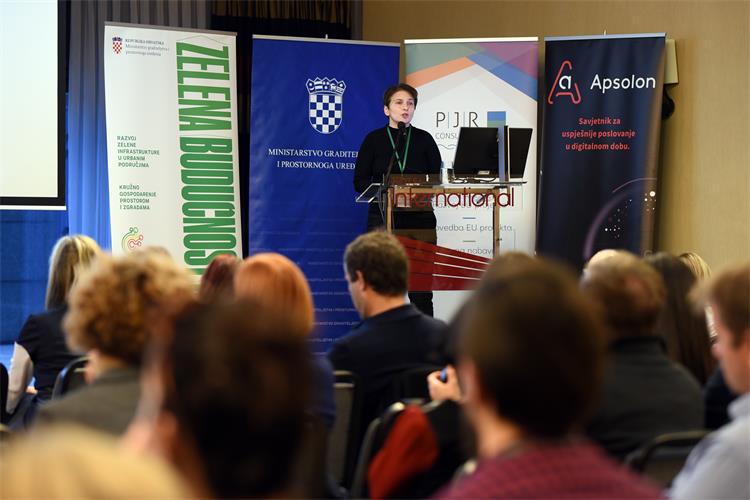
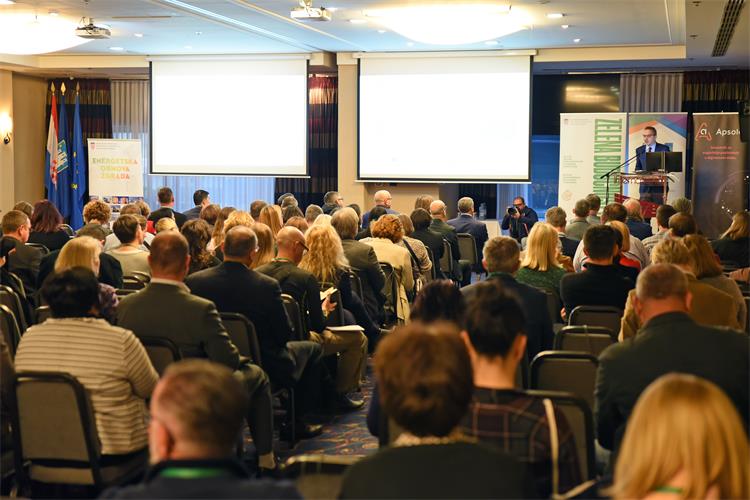
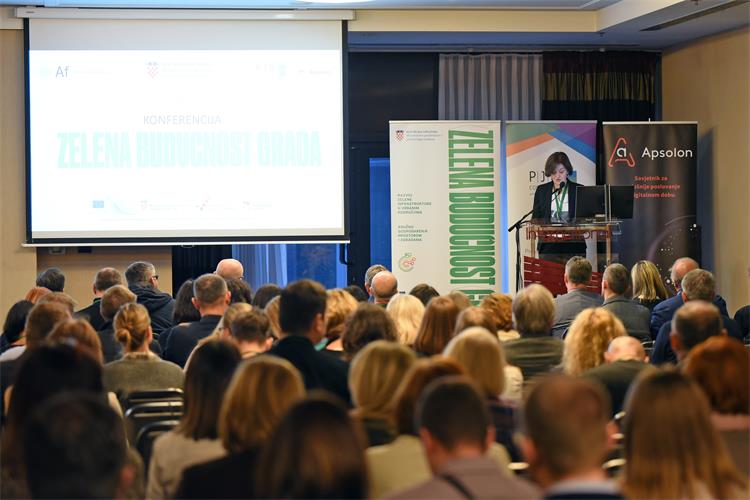





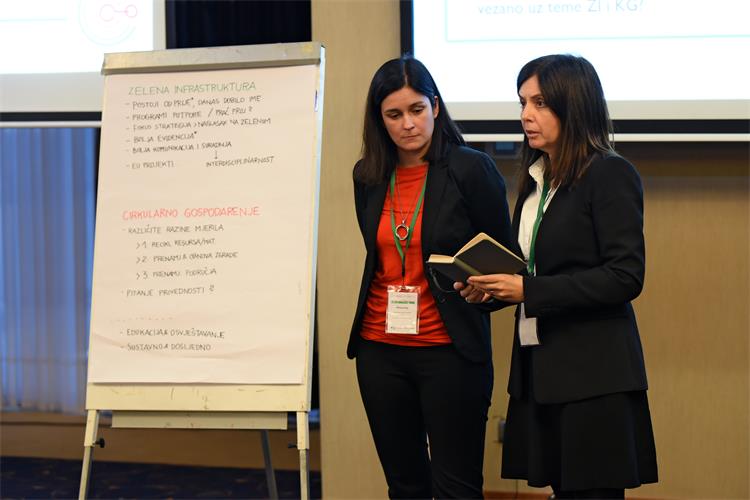
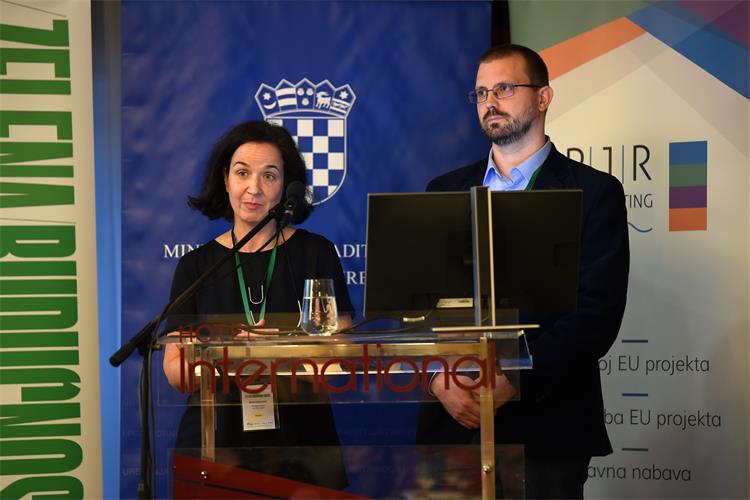
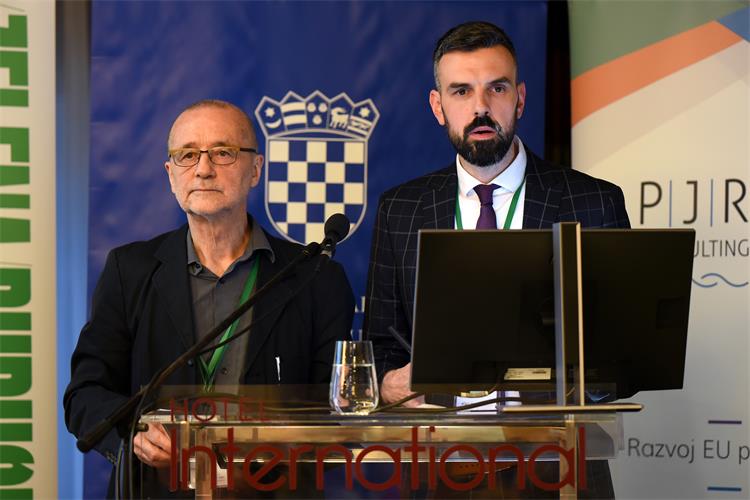
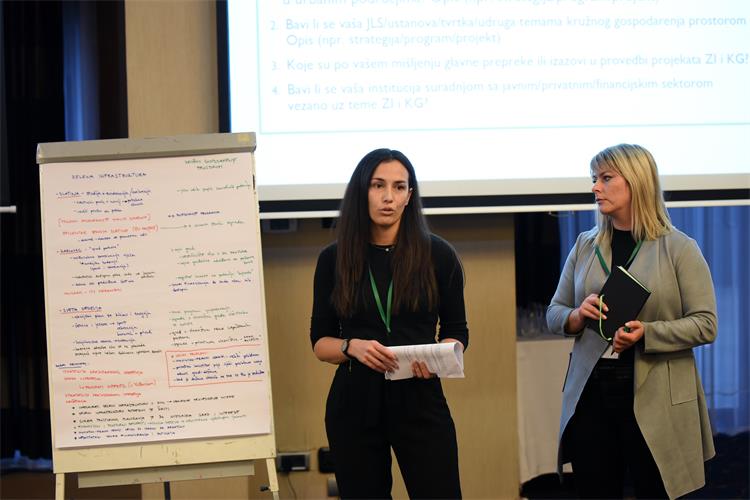

Photo by Foto studio "e"
“The strategy 2020 until 2030 develops strategies to mitigate CO2 emissions, increase energy efficiency and develop more comfortable living conditions for our citizens”, said Minister Štromar and further explained that the focus is on urban, large areas, where green infrastructure and green policies could accomplish these goals, in other words reduce temperatures in big cities.
“So far, we mostly used grants for energy efficiency, and currently there are more than 1400 buildings being or are renovated, we have warm and safe homes, comfortable classrooms, assembly halls and infirmaries, but now we are working on new goals”, said Minister of Construction and Physical Planning.
Green infrastructure is recognized at the EU level as one of the basic dimensions in achieving sustainable urban development, and one principle supporting urban development is circular economy whose business model replaces the concept of “end life” products and uses the alternative re-use concept contributing to sustainability of raw materials and energy. Important part of European strategy for circular management is circular management of spaces, which includes re-use of abandoned spaces and buildings and intensive use of existing buildings and spaces. Building new and demolishing existing buildings results in excessive demolition material which accounts for third of all manufactured waste in EU-a, which is why circular management of spaces will have a huge impact inn sustainable urban development of cities and urban areas.
Photo:


























Photo by Foto studio "e"



